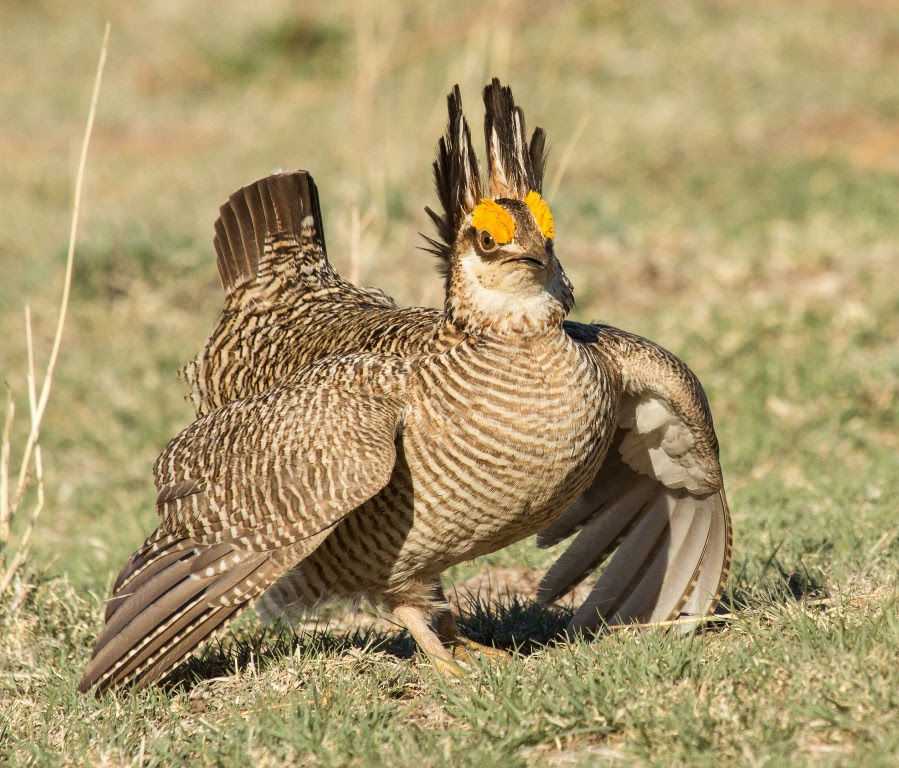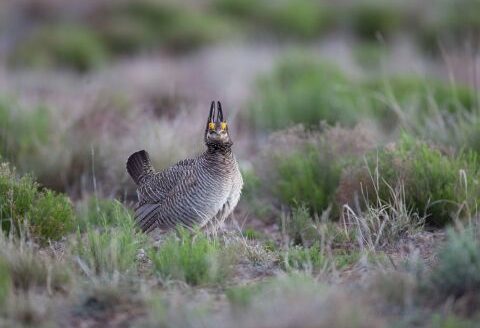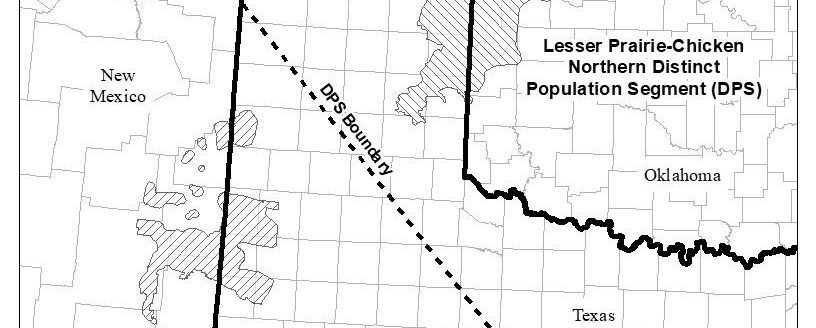Various entities continue to keep tabs on what might be in the offing for lesser prairie-chicken habitat in western Kansas.
Recently, Cameron Edwards, a group of Kansas agricultural producers, and the Kansas Natural Resource Coalition filed suit against the United States Fish and Wildlife Service to block Endangered Species Act protective regulations for the lesser prairie-chicken that would dramatically restrict land use across millions of acres.
“The Endangered Species Act requires the government to balance conservation efforts with the economic impacts of regulations,” said Charles Yates, an attorney at Pacific Legal Foundation. “The Fish and Wildlife Service plainly failed to do that in this case. It violates the constitutional separation of powers whenever an agency ignores the limitations placed on it by Congress.”
The Fish and Wildlife Service’s rule would put agricultural producers in a bind, a news release from the KRNC recently stated. They must either make costly changes to their land, which could destroy their livelihoods, or keep using their land freely and productively and hope that the government doesn’t punish them, according to the release.
The case is Kansas Natural Resource Coalition v. U.S. Fish and Wildlife Service, filed in United States District Court for the District of Kansas.
Two members of the Kansas congressional delegation also voiced their support for a recently approved Congressional Review Act to strike down the listing of the lesser prairie-chicken under the Endangered Species Act. In May, the United States Senate approved the vote on a 50-to-48 vote and recently the U.S. House of Representatives passed its version 221 to 206.
“The federal government thinks it knows best when it comes to conservation, yet despite billions of dollars being spent, less than 2% of all listed species have been removed from ESA protection since 1973. On the other hand, farmers, ranchers, and energy producers have voluntarily conserved tens of millions of acres of potential habitat for the lesser prairie-chicken which has had a rising population since 2014,” said U.S. Sen. Roger Marshall, R-KS.
“This resolution pushes back on an unnecessary and burdensome regulation that threatens the livelihoods of people in rural America,” said U.S. Rep. Tracey Mann, a Republican who serves the First District. “Farmers, ranchers, and agricultural producers are the original conservationists, and the federal government must get out of their way and let them do what they do best.”
Wayne Walker, a principal with Common Ground Capital, LLC, Oklahoma City, Oklahoma, hopes that private interests will continue to work together. The entity has conservation bank credits certified by the U.S. Fish and Wildlife Service.
The key to increasing the bird’s population, which has generally been declining most years in the past decade, is to have habitat to support the bird. “If we can get enough acres under conservation the birds will come back, and we’ll see the birds come back and we’ll see growth versus losing (population).”
Walker says property owners who work with a conservation program such as credits can help ensure lesser prairie-chicken will have habitat and be able to balance it with other competing interests. Landowners can use those payments to improve their operations while preserving habitat the bird needs.
Dave Bergmeier can be reached at 620-227-1822 or [email protected].




